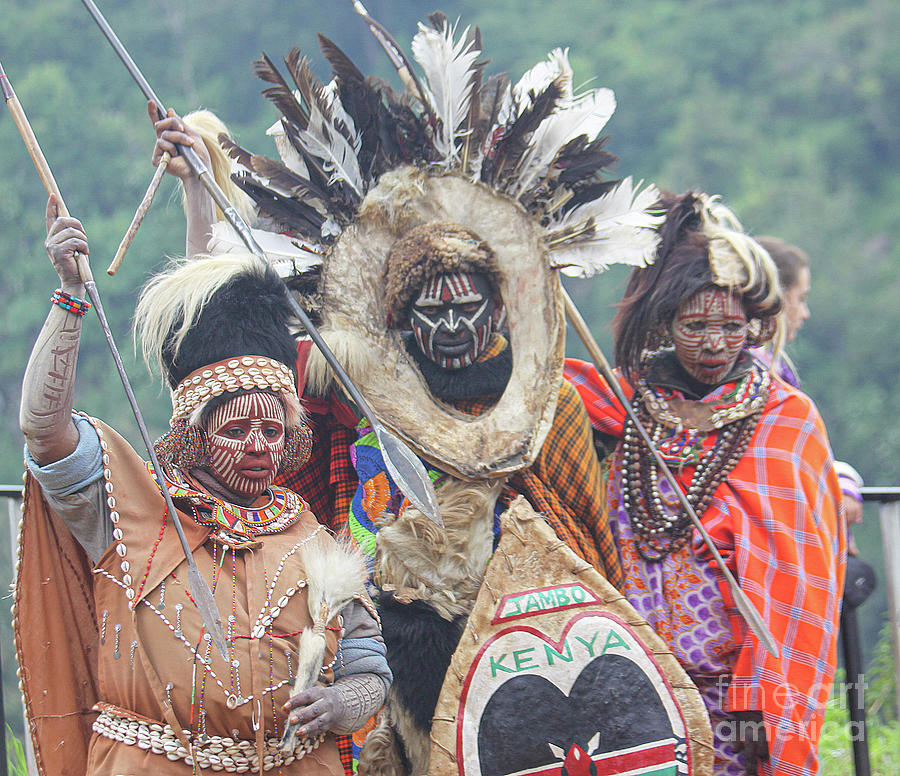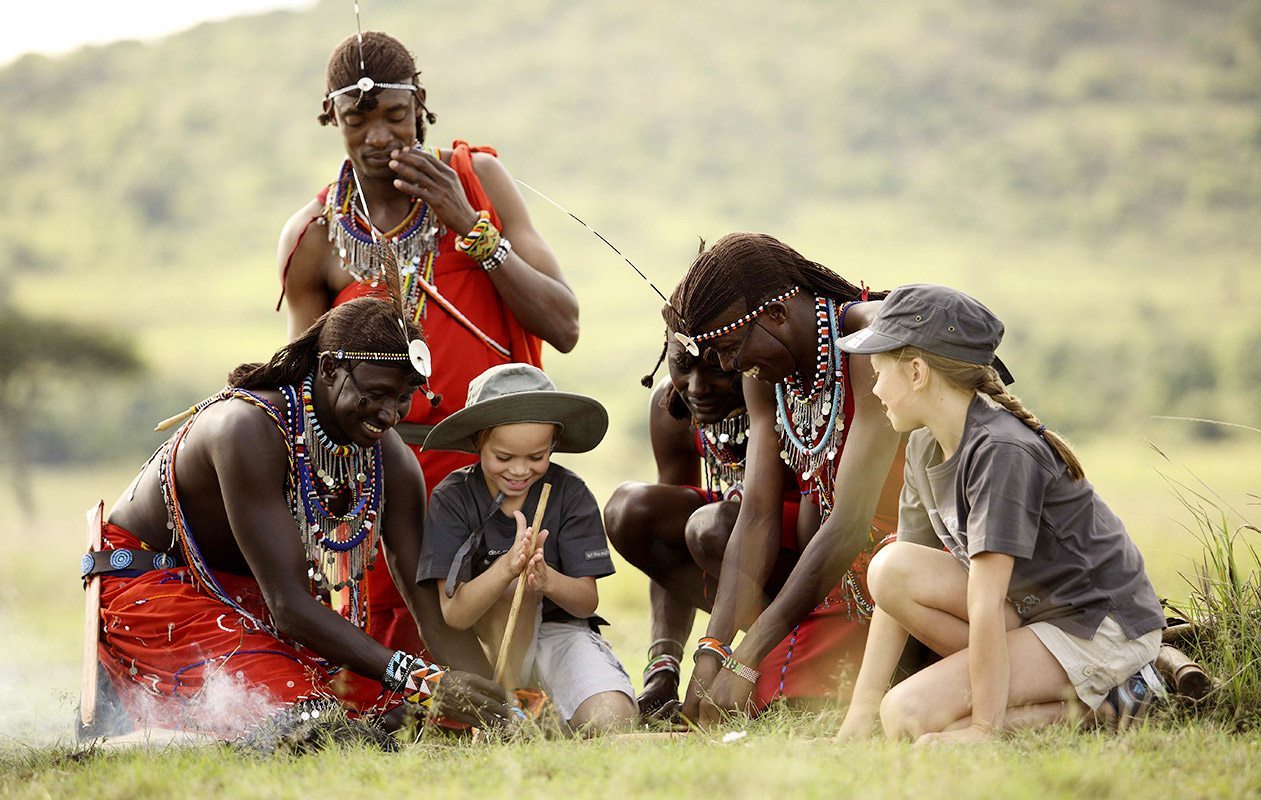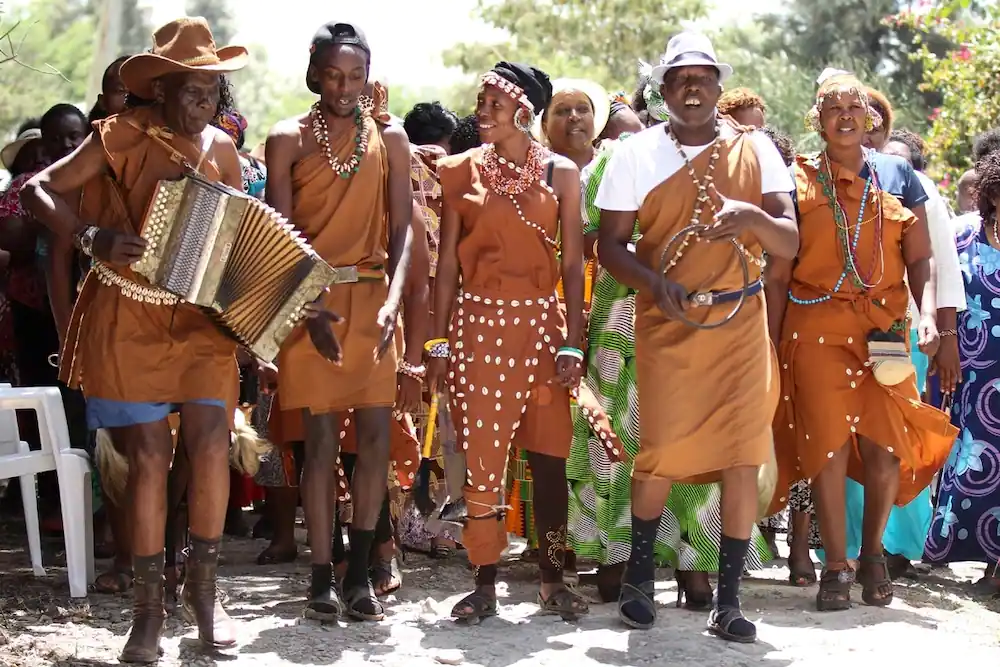
Cultural Tours in Kenya: A Journey Through Tradition and Heritage
Cultural Tours in Kenya: A Journey Through Tradition and Heritage. Kenya is not only renowned for its breathtaking landscapes and abundant wildlife. But also for its rich cultural tapestry that spans across different ethnic groups. Cultural tours in Kenya offer an immersive experience into the lives, traditions, and customs of its people. Particularly the Maasai, Samburu, Kikuyu, and Swahili communities. As you embark on a safari in this East African nation. You will find that these cultural encounters add depth and meaning to the typical wildlife adventure. From the rolling savannahs to the coastal shores. Kenya’s cultural tours offer insights into age-old practices that continue to shape the country’s identity.

-
Maasai Cultural Encounters: Iconic Nomads of the Savanna
When most people think of cultural tours in Kenya. The Maasai are often the first community that comes to mind. Known for their bright red shukas (cloth) and intricate beadwork. The Maasai people have become synonymous with the Kenyan landscape, particularly in regions surrounding popular wildlife destinations.
To truly experience the Maasai culture, a visit to the Maasai Mara is essential. This region, bordering Tanzania, is home to the Maasai people who have thrived in this harsh environment for centuries. The cultural tours here often begin with a visit to a traditional boma (village). Where you can interact with the Maasai and learn about their way of life. The village is made up of small, circular huts constructed from mud, sticks, and cow dung, reflecting their resourceful lifestyle. During your visit, you’ll witness traditional dances, hear age-old folklore, and even have the chance to participate in the famous jumping dance. A competitive display of strength among Maasai warriors. As you explore the Mara region on safari. It’s common to see Maasai herders alongside their cattle. A practice that underscores the symbiotic relationship between the people and their environment.
Moreover, the Maasai’s deep connection to the land is evident in their conservation efforts. Many cultural tours in this region include a conversation about the community’s role in protecting wildlife and the natural environment. With the rise of community conservancies, the Maasai have embraced eco-tourism, offering travelers an authentic experience while promoting sustainability.
-
Samburu Cultural Tours: Resilience in the Northern Frontier
Heading further north, the Samburu people offer a similarly captivating cultural experience, yet with their own distinct traditions and practices. The Samburu live in Kenya’s remote northern regions, often in proximity to Samburu National Reserve. While they share some similarities with the Maasai, particularly in their semi-nomadic lifestyle, the Samburu culture has unique elements that make a visit here enriching and unforgettable.
Samburu cultural tours often begin with a trip to the villages located near the national reserve. Here, you’ll find vibrant communities that have retained much of their traditional way of life, with fewer influences from modern society. Visitors are welcomed with a traditional greeting ceremony, which includes chanting and dancing, setting the tone for an immersive cultural experience. The Samburu are known for their intricate beadwork, and on most tours, you can purchase handmade jewelry directly from the artisans, contributing directly to the local economy.
The Samburu people are deeply connected to their livestock, particularly camels, which are vital for their survival in the arid landscapes of northern Kenya. A highlight of these tours is learning about their pastoral way of life and witnessing how they adapt to the challenging environment. Many safaris to Samburu National Reserve incorporate these cultural tours, providing travelers with a blend of wildlife viewing and cultural immersion. The reserve itself is home to rare species like the Grevy’s zebra, reticulated giraffe, and Somali ostrich, but the human interaction with this landscape is just as fascinating.

-
Kikuyu Cultural Tours: A Glimpse into Kenya’s Largest Ethnic Group
While the Maasai and Samburu communities often take center stage in Kenya’s cultural tours, the Kikuyu people, who make up the largest ethnic group in Kenya, offer a unique experience that is deeply intertwined with the country’s modern history. The Kikuyu reside mainly in the central highlands near Mount Kenya, a region that is also a popular destination for nature lovers and trekkers.
A Kikuyu cultural tour typically includes a visit to a local homestead, where you can learn about their agricultural practices and family structures. The Kikuyu are traditionally farmers, cultivating crops such as maize, beans, and coffee. Many tours also include visits to sacred sites, such as the Mukurwe wa Nyagathanga in Murang’a, believed to be the origin of the Kikuyu people. Additionally, the region is rich in folklore, and visitors are often treated to stories that have been passed down through generations.
While exploring this region on safari, cultural tours can be combined with hikes on the slopes of Mount Kenya or wildlife excursions in nearby Aberdare National Park. The juxtaposition of modern Kenya and its traditional roots becomes evident as you explore these landscapes, offering a more rounded understanding of the country’s cultural identity.
-
Swahili Cultural Tours: A Blend of African, Arab, and Asian Influences
No cultural tour in Kenya would be complete without visiting the coastal regions, home to the Swahili people. The Swahili culture is a rich fusion of African, Arab, and Asian influences, a result of centuries of trade along the Indian Ocean coast. Mombasa, Kenya’s second-largest city, and the Lamu Archipelago are key destinations for those interested in exploring this fascinating cultural blend.
A Swahili cultural tour often includes a visit to the old town areas of Mombasa or Lamu, where the narrow streets and ancient buildings tell the story of a vibrant past. The architecture, with its carved wooden doors and coral stone buildings, reflects the deep history of trade and cultural exchange. Visitors can tour ancient mosques, bustling markets, and traditional Swahili homes. The coastal cuisine is another highlight, with dishes like biryani, pilau, and coconut-based curries offering a tantalizing taste of the Swahili way of life.
For those who venture to Lamu Island, a UNESCO World Heritage Site, the cultural experience is even more immersive. Here, you’ll find one of the oldest Swahili settlements in East Africa. Where life moves at a slower pace, and donkeys are still the main mode of transport. The Lamu Cultural Festival, held annually, is a perfect time to visit. As it showcases Swahili traditions, including dhow races, poetry readings, and music performances.

Conclusion: Enriching Your Safari Experience
Incorporating cultural tours into your Kenyan safari allows for a deeper connection to the land and its people. From the vibrant traditions of the Maasai and Samburu to the historical depth of the Kikuyu and Swahili communities. These encounters provide a richer understanding of Kenya’s cultural heritage. By engaging with local communities. You not only learn about their way of life. But also contribute to sustainable tourism practices that help preserve these traditions for future generations.
A safari in Kenya is undoubtedly an unforgettable experience due to its spectacular wildlife. But by adding a cultural dimension, you take home stories, lessons, and memories that go beyond the ordinary. Whether you’re exploring the Maasai Mara, Samburu, central highlands, or the coastal towns. The blend of nature and culture makes Kenya a truly unique destination.
Related Posts;






